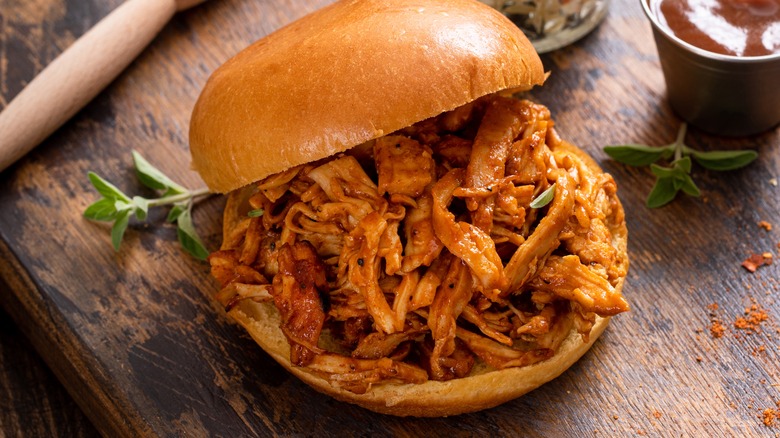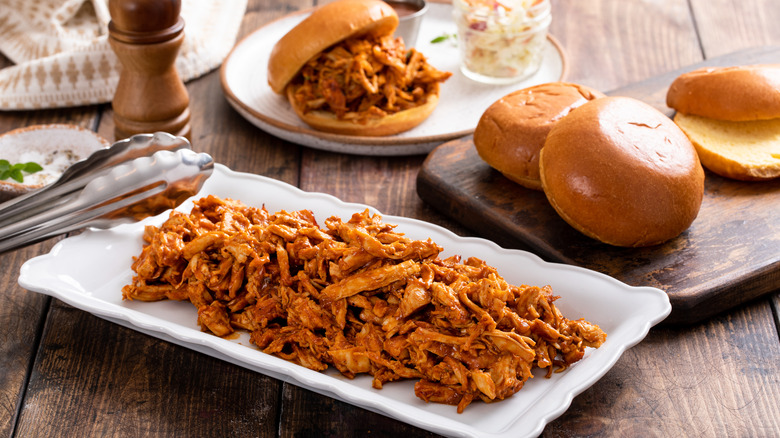How To Make Fall-Apart Instant Pot BBQ Chicken Every Time
Pulled barbecue chicken is one of those versatile dishes that works with just about anything — piled high in a brioche bun, paired with spicy tacos, or tossed into a hearty salad. When you need it fast, the Instant Pot is your best asset, turning minimal prep and effort into a tender and flavorful weeknight meal. To learn how to nail fall-apart Instant Pot barbecue chicken every time, Food Republic consulted Nicole Johnson, food blogger and recipe developer at Or Whatever You Do.
For the most shreddable chicken, Johnson recommends using boneless, skinless chicken thighs, as they "hold up under pressure and stay juicy." Unlike lean breasts, thighs are a preferred option due to their higher fat content, which gives them a richer depth of flavor and tenderness. Johnson also advises keeping liquid to a minimum — "usually about [1 to 2] cups" — to ensure a more concentrated flavor. To further elevate the taste, she suggests incorporating rich liquids such as homemade chicken broth, adding that "beer or cider can also be interesting and tasty!" You can also add aromatics like bay leaves, peppercorns, or rosemary to introduce a more complex flavor profile.
As for cooking times, Johnson recommends: "Cook for about [8 to 10] minutes under high pressure for fresh thighs, or [12 to 14] for frozen." One non-negotiable step for fall-apart chicken is to "do a natural release for at least 10 minutes," she added. This helps prevent the chicken from becoming dry and tough, ensuring your poultry stays perfectly moist and tender for any dish.
When should you add the BBQ sauce?
When making barbecue chicken in the Instant Pot, one big question often comes up: Should you add the sauce before or after cooking? According to Nicole Johnson, the answer is clear — sauce should always be added after. No matter what variation you're using, most barbecue sauces tend to include sugar as a key ingredient. While sugar contributes a signature sweet depth, it also reacts to heat in a very specific way. Under the intense cooking conditions of pressure cooking, it quickly caramelizes, which can drastically change the sauce's texture and flavor. Too much caramelization can result in a darker color, a gritty texture, and an unpleasant bitterness that no longer reflects the sauce's intended qualities.
By holding off on the sauce until the chicken is fully cooked, you can avoid these issues entirely. Johnson recommends to "cook the chicken in a simple liquid, shred it, and then stir in your barbecue sauce while it's still hot." This allows the sauce to retain its original qualities, shining through with the shredded chicken. The approach not only preserves the sauce's flavor and consistency, but also ensures it coats every strand of the tender meat without breaking down or clumping. The result is barbecue chicken that tastes exactly as intended — sweet, smoky, and a little bit tangy.


